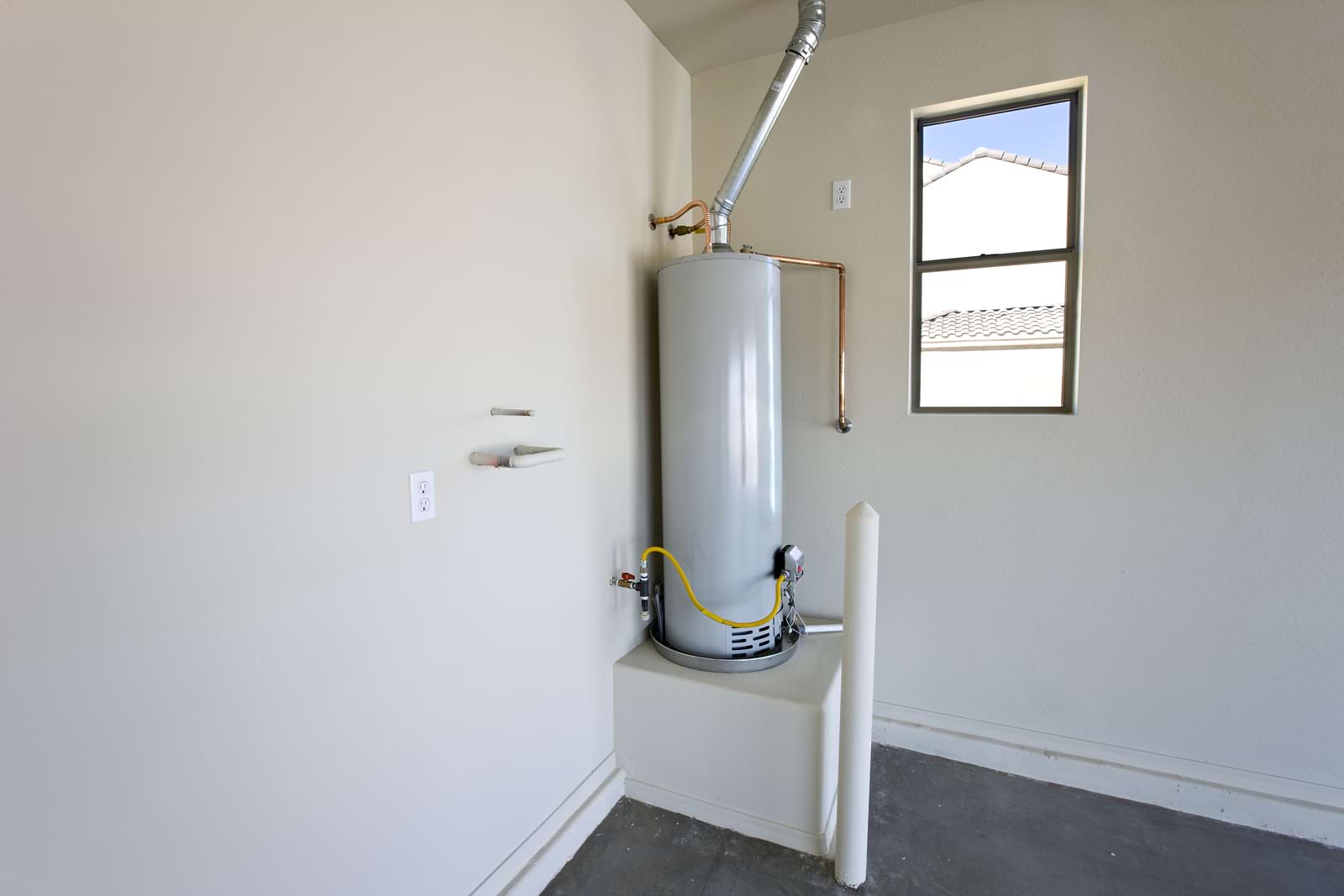How Long For a 40-Gallon Water Heater To Heat Up
Let’s cut to the chase: how long your 40-gallon water heater takes to heat up depends mostly on whether it uses gas or electricity. Here’s the general rule of thumb:
- Gas Water Heaters: Typically heat a full 40-gallon tank in about 30-40 minutes.
- Electric Water Heaters: Can take an hour to an hour and a half to do the same job.
Of course, there are a few other factors that can tweak those heating times. Let’s dive into the details so you’ll know what to expect!
Factors Affecting Water Heater Heating Time
Here’s where things get a little more interesting! Beyond just the fuel type, a few other things play into how quickly your hot water comes back after a long shower or a load of laundry.
- Incoming Water Temperature: If the water coming into the tank is ice-cold (like in winter or from a deep well), it’s going to take longer for your heater to work its magic. It has more work to do!
- Desired Temperature Setting: How hot do you like it? The higher your thermostat setting, the harder the heater has to work, and the longer it takes to reach that temperature.
- Water Heater Age & Condition: Is your water heater a seasoned veteran? Over time, sediment builds up in the tank, acting like insulation and slowing down the heating process.
Gas vs. Electric: Recovery Time Showdown
Let’s break down the differences between gas and electric water heaters even further. Here’s a handy table to illustrate typical heating times:
| Water Heater Type | Tank Size (Gallons) | Approximate Recovery Time |
| Gas | 40 | 30-40 minutes |
| Gas | 50 | 40-50 minutes |
| Gas | 80 | 60-70 minutes |
| Electric | 40 | 60-80 minutes |
| Electric | 50 | 80-100 minutes |
| Electric | 80 | 120-140 minutes |
A Note on Tankless Heaters: Tankless water heaters are a whole different ballgame! They heat water on demand, so tank size isn’t a factor, but they can be limited by flow rate.
How to Troubleshoot a Slow Water Heater
Ugh, waiting around forever for hot water is no fun. Here are some things to check out if your water heater feels like it’s taking longer than it should:
- Thermostat Setting: Check that it’s not set too low (120 degrees Fahrenheit is standard).
- Sediment Buildup: If you haven’t flushed your tank in a while, it might be time. Draining the tank can help clear out gunk that slows down heating.
- Heating Element Failure (Electric Heaters): A faulty heating element might be heating the water weakly or not at all.
- Gas Supply Issues (Gas Heaters): Ensure gas is flowing to the heater and there are no leaks.
Important: If troubleshooting doesn’t help, or you suspect a gas leak, it’s always best to get a qualified professional to take a look. Safety first!
Maximizing Your Hot Water During Peak Usage
Nobody wants to be the person taking all the hot water! Let’s talk about some ways to stretch out that warm goodness, particularly when everyone in the house seems to need a shower at once.
- Stagger Usage: If possible, spread out high-demand activities like showers, laundry, and dishwashing. Avoid running everything at the same time to give your water heater a chance to catch up.
- Low-Flow Fixtures: Switching to low-flow showerheads and faucets reduces how much hot water you use at once. That leaves more available for the next task or the next person needing hot water.
- Insulate Your Pipes: Heat naturally escapes from those pipes, especially if they run through unheated spaces. Adding insulation helps keep hot water hotter, longer.
- Consider a Timer (Electric Heaters): This lets you program your heater to heat water only during the times you typically need it, saving energy when you don’t.
Is a Larger Tank the Solution?
It’s a fair question! If there just never seems to be enough hot water, you might wonder if going up in tank size will solve the problem. Here’s the thing to keep in mind:
- Bigger Tank, Longer Heating Time: Remember those tables earlier? Larger tanks take longer to heat up.
- Is Usage the Real Issue?: Before replacing your water heater, consider your household’s usage patterns. If the problem is high demand all at once, a bigger tank won’t fix that.
- Cost Factor: Larger tanks are more expensive to purchase and operate. If there’s a way to solve your hot water woes without upgrading, it might be smarter for your wallet.
Energy Efficiency Notes
Your water heater is a significant energy user in your home. Let’s touch on a few ideas to keep things as efficient as possible:
- Energy Star Appliances: Look for models with the Energy Star label when replacing your water heater. They use modern technology that helps reduce energy costs.
- Tankless Options: While they have their own pros and cons, tankless water heaters can be significantly more energy-efficient.
- Consider Hybrid Heat Pump Systems: This high-tech option offers excellent efficiency but can be more expensive upfront.
Conclusion- How Long For 40 Gallon Water Heater To Heat Up?
So, how long does a 40-gallon water heater take to heat up? It depends! Gas heaters are generally faster, and a host of factors can impact the exact time. By understanding the ins and outs of your heater and applying a few smart strategies, you should be able to enjoy reliable hot water any time you need it.
